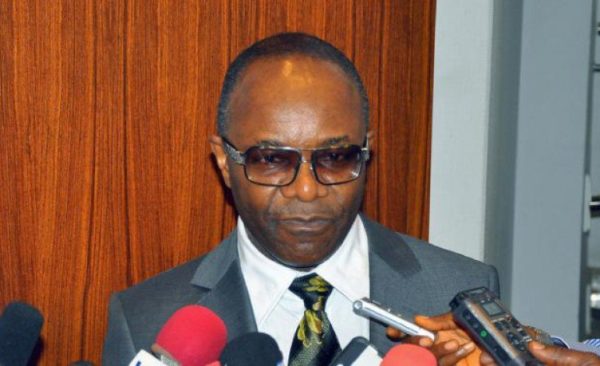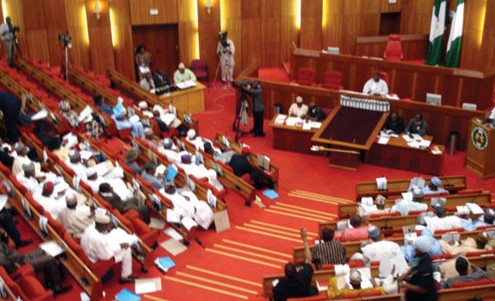…Kachikwu says not a negotiation,
…Nigeria sees1,800 attacks on pipelines in 10 months
President Buhari will today in Abuja meet with 80 Niger Delta leaders for talks on possible restoration of peace in the militancy-torn region.
But Ibe Kachikwu, Minister of State for Petroleum Resources says the meeting will not be a platform for any negotiation but a courtesy call by the leaders on the President, where talks would basically centre around finding solutions, as both parties go into the meeting with what he calls “honesty of purpose.”
“We are going to be having an open- minded meeting. We all are trying to find solutions. And there is honesty of purpose about it,” Kachikwu tells BusinessDay.
“The meeting is not a negotiation; it is a courtesy call on the president so that we can exchange views on how best to go on this negotiation plans. We have about 80 people attending the meeting and you can’t negotiate with 80 people at the same time.
“But at least, we can hit the nails in terms of where the issues are and get also the consensus of government. If we can get a consensus as to how to move forward and build a team that will work on the issues as we go ahead, that is fine.”
Nigeria has been hit by growing unrest in the country’s oil-producing south by a new militant group calling itself the Niger Delta Avengers who, again, claimed responsibility for last week’s bombing of Chevron Escravos export pipeline at Escravos offshore, Delta State, signaling the resumption of bombings of critical oil infrastructures by the militant group.
Demanding an independent state and an ousting of international oil companies from the region, the militant group has been observing a ceasefire since the Federal Government indicated an interest to begin dialogue with Niger Delta stakeholders to address the problems in the area.
The Avengers accuse government of insincerity with the dialogue, following alleged militarisation of the region and the recently concluded Operation Crocodile Smiles which saw soldiers storming the creeks during the ceasefire.
Kachikwu, also a Niger Delta indigene, who will be sitting at the centre of the proposed talks with the leaders, regrets that “Year to date, we have had about 1,800 attacks on pipelines, surpassing about 3,000 seen over the last four years, cumulatively.
“So we had more attacks this year, so something needs to give, we need to move back from that,” he tells BusinessDay in an exclusive interview.
“And my attitude to it, and I’ve said this to my Delta brothers, is not an attitude that if you don’t do this, I’ll do this. Government has a responsibility to protect its environment, its citizens, its assets and it will never give up on that.
“But obviously, going to war isn’t the way to do it; talk is the best way to do it, but we also have civic responsibility to security, so I don’t think the question will be if we don’t do it fast enough, you are going to go back and start militancy.”
The minister had said last Thursday that government is targeting zero militancy in the region by mid 2017 and will intensify security with a new apparatus that makes the oil companies fully responsible for safety of their facilities, even as negotiations go on between stakeholders and the government.
He also advocates the need to “shuffle off militancy as a tool for progressing the things that any aggrieved group is pushing for.
“As I have always said, the places that pay most for that are the Niger Delta.
“If you blow up a pipeline, there is a product rupture; there is environment hazard and health hazard. You are actually hurting yourself to make a point. I think that point has been made over and over again,” he adds.
Kachikwu says stopping militancy in the region will now give government the room to begin to really address the Niger Delta challenges frontally, as he raises concerns over the several billions of naira earmarked for the Niger Delta region over the years which were misused.
“We have responsibility as a government, and the President recognizes this
responsibility that to the extent that this can stop and should stop, and shouldn’t even be an element of negotiation, then we have a responsibility to go back and look again, ask what has gone wrong in the Niger Delta itself, all the monies that we have put in there, nobody can find it.
“When I say this, some people get upset, we have spent ten to forty billion over the last how many years, a lot of that didn’t even get there, some of that got diverted through all kinds of schemes. I’m not saying that Niger Delta misused it, some didn’t even get there. Then some that got there were used for very flamboyant things that did not really deal with the lives of the people and our infrastructure need in the area.
“But I don’t think we should negotiate on threats, the right thing is to negotiate
on a complete understanding of the urgency of the problem which we have seen in the last few months,” he notes.
Kachikwu also says that President Buhari has approved a roadmap, some of which is that the security in the Niger Delta is going to move from the responsibility of the military and the country’s security apparatus, to that of the oil companies as it is done the world over.
“This means they would need to institute processes that would work with local communities to guide and protect their production facilities.
“While those collaboration may not be armed collaboration, it covers the trust deficit that existed in the region and provide a very unique earnings and income making opportunities for people within that local communities.
The minister had also informed that the presidency has agreed to look at the possibility of setting up a specialised petroleum force.
“That is going to draw on the elites of the security services, and be provided with resources that are amphibious, that are technology-driven to enable them to be able to respond to the request of the oil companies if they get overwhelmed outside their first line security.”











